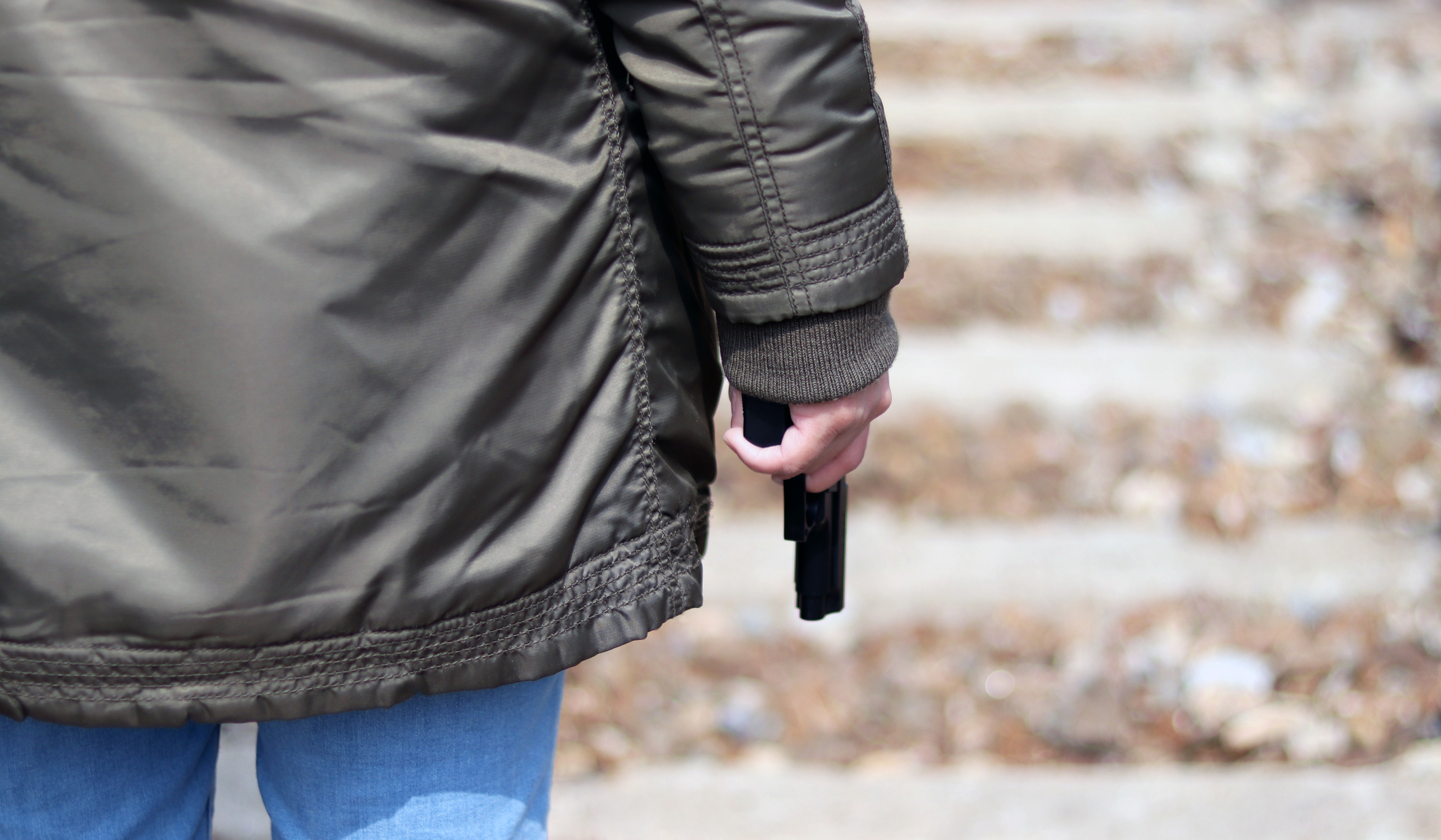What Is a Weapons Under Disability Charge in Ohio?
The term “weapons under disability” refers to the possession of a firearm or dangerous ordnance by a person who is legally prohibited from owning or possessing firearms under the Ohio Revised Code Section 2923.13. This state law prohibits specific individuals from owning, possessing, or carrying firearms or dangerous ordnance due to specific “disabilities,” or disqualifying legal factors.”
Dangerous ordnance,” as defined in the Ohio Revised Code Section 2923.11, refers to automatic or sawed-off firearms, zip guns, ballistic knives, explosive or incendiary devices, nitroglycerine, TNT, blasting powder, plastic explosives, and many other dangerous items and substances, as listed in the statute. Violation of the weapons under disability law is a third-degree felony.
Who Is Prohibited from Possessing Firearms Under Ohio Law?
A person is considered to be under a disability and prohibited from possessing firearms or dangerous ordnance if they fall into any of the following categories:
- Convicted felons: Persons who have been convicted of violent felony offenses or felonies involving illegal drug activity are prohibited from possessing firearms. Drug trafficking, robbery, and aggravated assault are examples of such offenses.
- Fugitive from justice: Any person charged with a crime and actively evading law enforcement is under a disability for weapons possession.
- Drug or alcohol dependent: Individuals with histories of chronic substance abuse or who are dependent on drugs or alcohol are prohibited from owning or possessing firearms.
- Under restraining or protection orders: Anyone who is subject to a restraining or protection order related to domestic violence or a personal safety issue is prohibited from owning, possessing, or carrying firearms while the order remains in effect.
- Mentally ill: Any individual who has been involuntarily committed to a mental institution or adjudicated mentally ill or incompetent by a court of law is prohibited from possessing firearms or dangerous ordnance.
What Are the Penalties for a Weapons Under Disability Conviction?
A weapons under disability offense is typically classified as a third-degree felony. Although penalties upon conviction may vary depending on the circumstances of the case, under state law, this crime may carry a definite prison term of nine, 12, 18, 24, 30, or 36 months, as stated in the Ohio Revised Code Section 2929.14. In addition to incarceration, penalties may include fines of up to $10,000 and loss of certain civil rights, such as voting, serving on a jury, or holding public office. While some civil rights may be restored once the sentence has been served, the right to possess firearms may be permanently lost unless specifically restored by the court.
Do Federal Laws Apply to Illegal Possession of Firearms?
Federal and state laws govern firearms possession. Under certain circumstances, federal authorities can prosecute for illegal possession of firearms. Under the federal Gun Control Act of 1968 and subsequent legislation, as outlined by the federal Bureau of Alcohol, Tobacco, Firearms and Explosives (ATF), felons, drug users, and individuals with certain mental health conditions are prohibited from possessing firearms. A conviction under federal law may carry even harsher penalties, including lengthy terms in federal prison.
What Are the Legal Defenses to Weapons Under Disability Charges?
A skilled criminal defense attorney may be able to raise legal defenses against weapons under disability charges, depending on the specific circumstances of your case. The following are some common defenses against these charges:
- Lack of possession: The prosecution must prove that the individual knowingly possessed the firearm or dangerous ordnance to convict a person of weapons under disability charge. The defense may argue that the accused was not in actual possession or was unaware of the presence of the weapon.
- Challenging disability status: An individual may have been incorrectly classified as being under disability. If you were wrongfully identified as having a mental illness or criminal conviction that prohibits possession of a firearm, the disability does not apply, and the charge should be dismissed.
- Unlawful search and seizure: The Fourth Amendment to the U.S. Constitution provides protection from unreasonable search and seizure by law enforcement. The defense may argue that a firearm or dangerous ordnance obtained in an unlawful search is inadmissible as evidence, leading to dismissal of the charges.
- Self-defense: A defense of necessity may be raised if an individual possesses a weapon for self-defense in an emergency. This defense requires proving the person’s actions were justified under the circumstances.
- Restoration of rights: If the court previously restored a person’s right to possess firearms, they are no longer under a disability, and the defense can be raised that the firearm was possessed legally.
How Can an Ohio Weapons Charges Lawyer Help?
If you are facing a weapons under disability charge, our skilled criminal defense attorneys at Watson Kuhlman, LLC can thoroughly examine the evidence and challenge every flaw in the prosecution’s case against you. We have extensive experience handling all types of weapons charges in Ohio, and we draw on all our resources to create a unique defense strategy for each case. Our goal is to minimize penalties and collateral damage associated with weapons charges while protecting your rights every step of the way. Call us at 216-208-7858 to schedule a free consultation with a seasoned Ohio criminal defense lawyer.


 Email Us Now
Email Us Now







